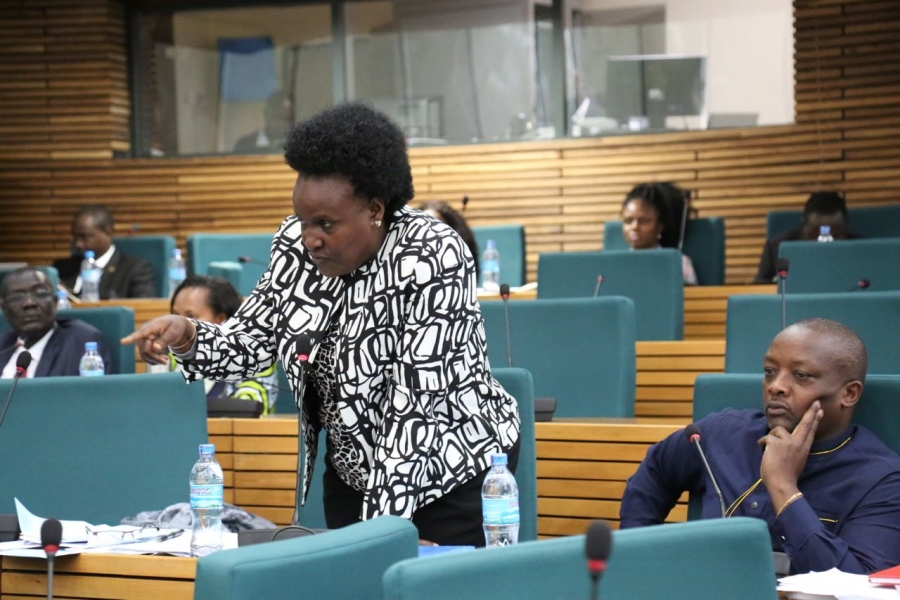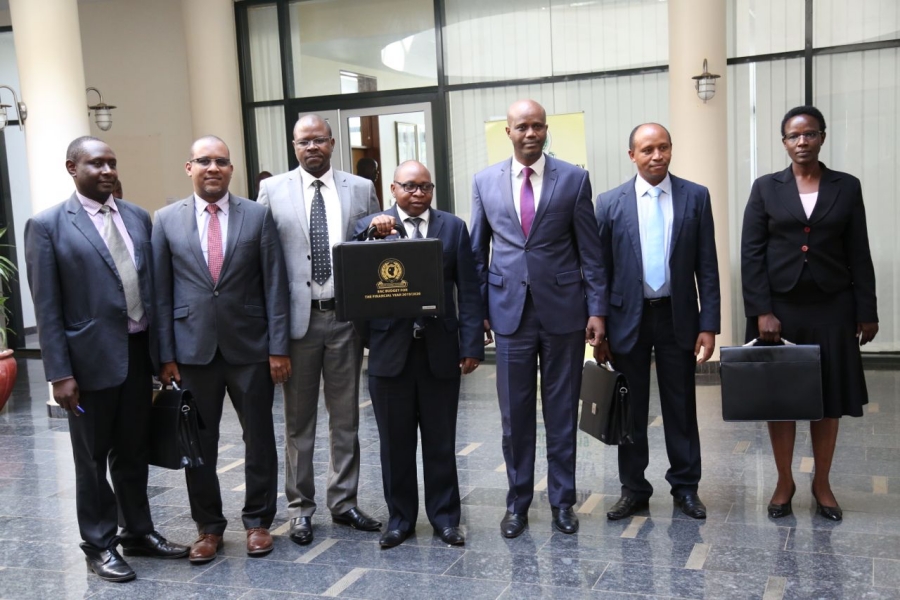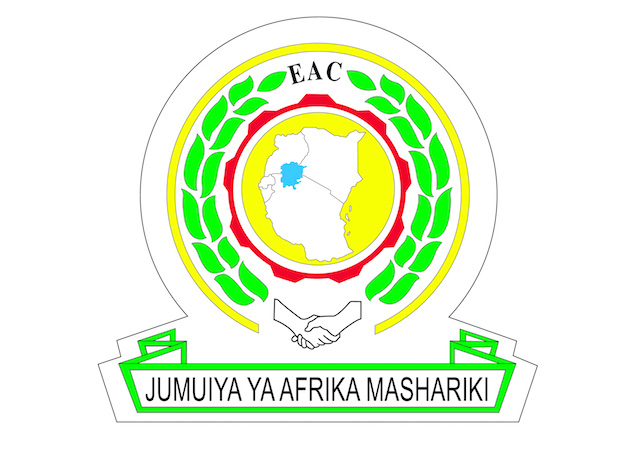
Assembly adjourns Budget Debate, demands presence of Council of Ministers
…Only Burundi’s EAC Minister was on front-bench
East African Legislative Assembly, Arusha, Tanzania: 25 June, 2019: The debate and approval of the EAC Budget proposals for the Financial Year 2019/20, will now be delayed for another day following adjournment of debate this afternoon. EALA Member, Hon Rose Akol, this afternoon moved a motion for adjournment, (under Rule 30 (c) of the Rules of Procedure of the EALA), citing the absence of majority of the Members of the Council of Ministers, with only Burundi’s EAC Minister, Hon Isabelle Ndahayo in attendance.
In her submissions, Hon Akol lamented over the absence of the Members of the Council of Ministers who occupy the front-bench. “Ideally, in the respective EAC ministries, for every Minister, there is a deputy minister. It is absurd just to have one in attendance. We must therefore adjourn until such time when the Council of Ministers is represented and prepared to come and address issues on the budget. We cannot talk much when the front bench is empty”, the legislator said.

